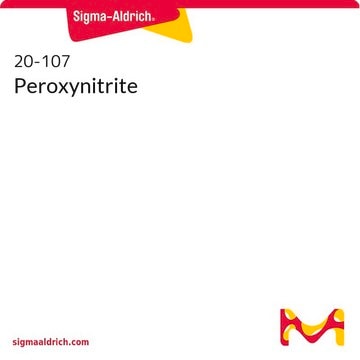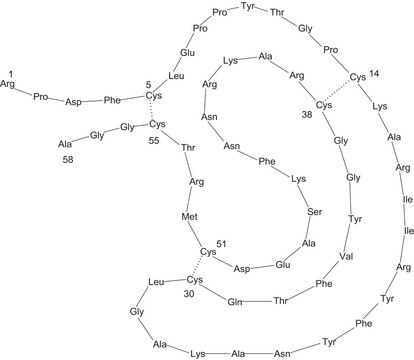516620
Peroxynitrite
liquid, biological oxidizing agent, Calbiochem®
Synonym(s):
Nitroxyl anion, Peroxynitrous acid
About This Item
Recommended Products
Product Name
Peroxynitrite, Synthesized from isoamyl nitrite and hydrogen peroxide.
Quality Level
form
liquid
manufacturer/tradename
Calbiochem®
storage condition
OK to freeze
avoid repeated freeze/thaw cycles
protect from light
color
yellow
shipped in
wet ice
storage temp.
−70°C
General description
Biochem/physiol Actions
Oxidizing agent that reacts with DNA, membrane phospholipids, sulfhydryl groups, and tyrosine
Packaging
Warning
Physical form
Preparation Note
Reconstitution
Other Notes
Sakuma, S., et al. 1997. Biochem. Biophys. Res. Commun. 230, 476.
Lymar, S.V., et al. 1996. Biochemistry 35, 7855.
Uppu, R.M., and Pryor, W.A. 1996. Methods Enzymol. 269, 322.
Ischiropoulos, H., and al-Medhi, A.B. 1995. FEBS Lett. 364, 279.
Legal Information
Signal Word
Danger
Hazard Statements
Precautionary Statements
Hazard Classifications
Carc. 2 - Eye Dam. 1 - Met. Corr. 1 - Muta. 2 - Skin Corr. 1B
Storage Class Code
5.1B - Oxidizing hazardous materials
WGK
WGK 2
Flash Point(F)
Not applicable
Flash Point(C)
Not applicable
Certificates of Analysis (COA)
Search for Certificates of Analysis (COA) by entering the products Lot/Batch Number. Lot and Batch Numbers can be found on a product’s label following the words ‘Lot’ or ‘Batch’.
Already Own This Product?
Find documentation for the products that you have recently purchased in the Document Library.
Customers Also Viewed
Our team of scientists has experience in all areas of research including Life Science, Material Science, Chemical Synthesis, Chromatography, Analytical and many others.
Contact Technical Service

















